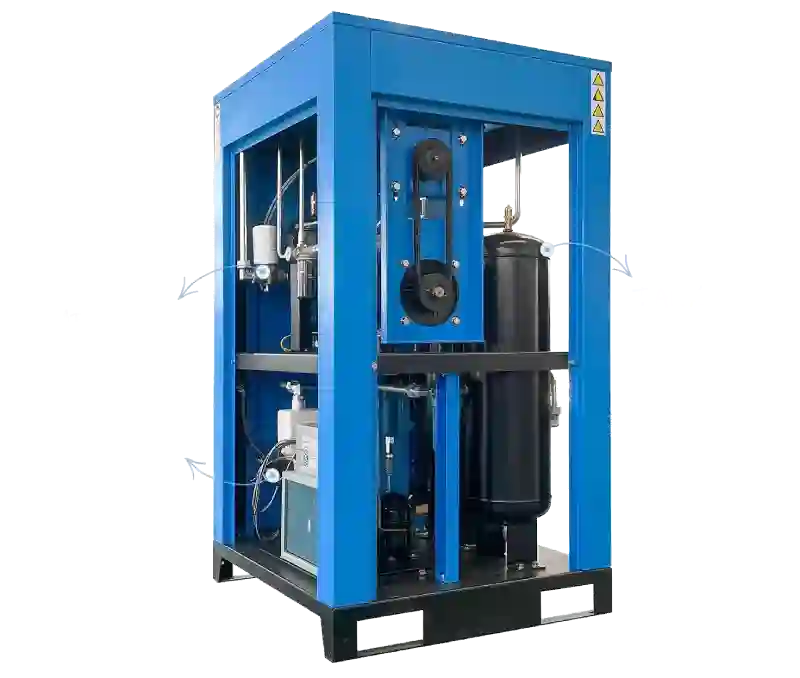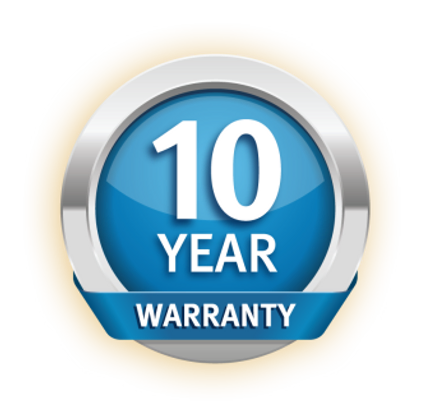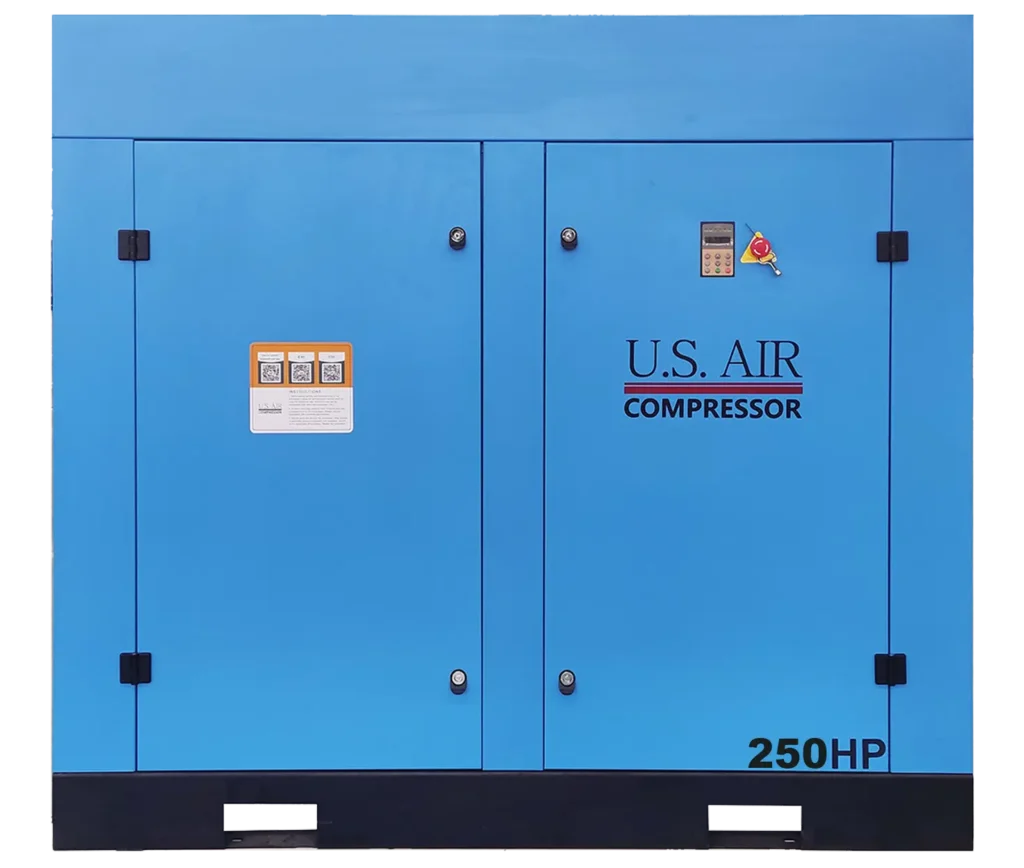Comparison Guide: Variable- vs. Fixed-Speed Air Compressors
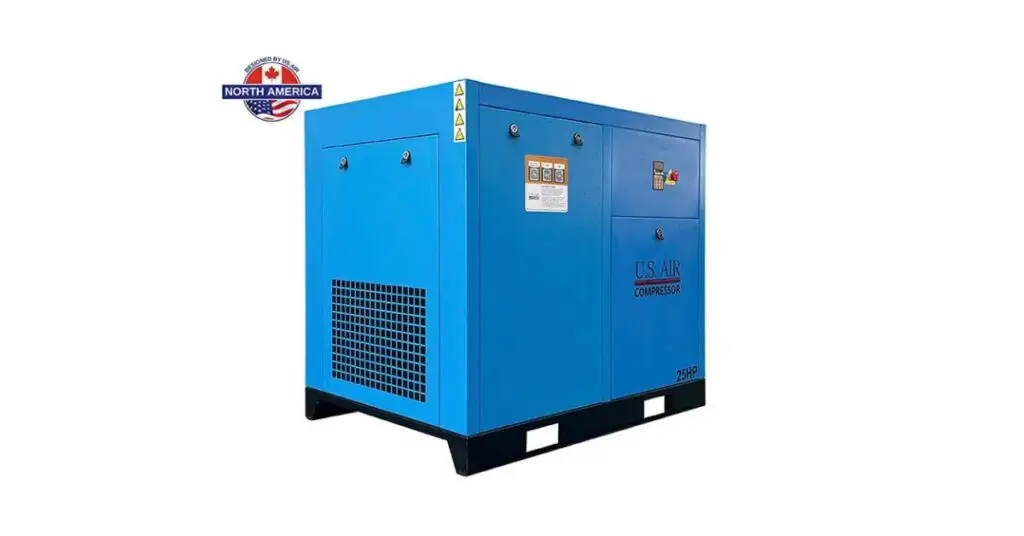
If your business relies on air compressors, choosing the right type is important to support your operations, energy costs, and maintenance requirements. The market offers two main options: variable-speed and fixed-speed air compressors.
This comparison guide explores variable- versus fixed-speed air compressors, offering considerations for each type. By the end, you’ll have a clear understanding of which is best for your operations and why consulting an expert before making your purchase is a smart move.
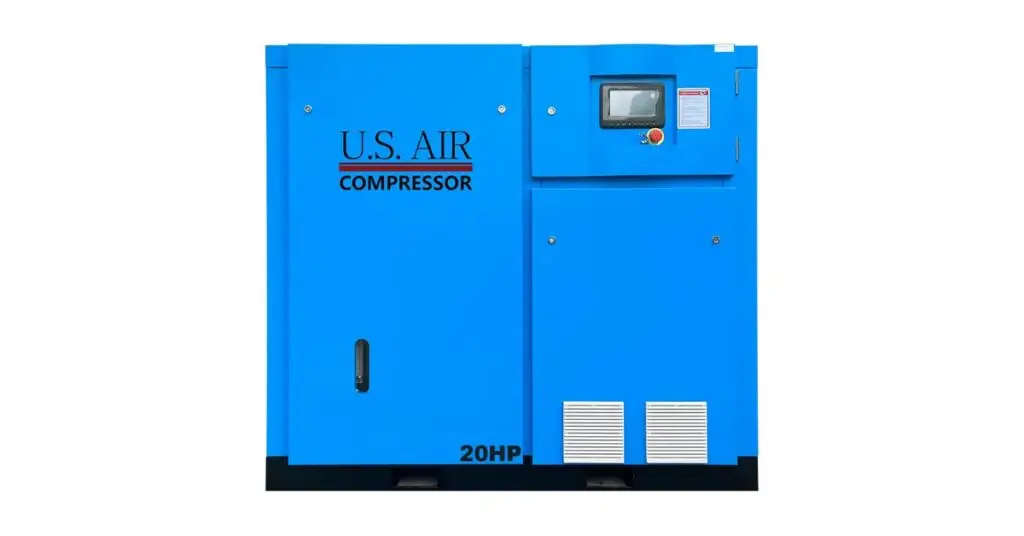
Introduction to Air Compressors
Air compressors convert power into pressurized air for various industrial and commercial tasks, from operating pneumatic tools to powering air-driven equipment. These machines are critical across many industries, such as manufacturing, construction, automotive, and healthcare.
Depending on your operational needs, the right air compressor can increase efficiency, lower costs, and enhance your workflow.
Understanding Variable-Speed and Fixed-Speed Air Compressors
What Are Fixed-Speed Air Compressors?
Fixed-speed air compressors operate at a constant speed, delivering a steady flow of compressed air. They’re either on, running at full capacity, or off. This simplicity makes them a straightforward option for applications requiring consistent airflow.
What Are Variable-Speed Air Compressors?
Variable-speed air compressors adjust their motor speed depending on the demand for compressed air. This flexibility allows them to deliver just the right amount of air, reducing excess energy usage when demand is low.
Key Differences at a Glance
The main differences between variable-speed and fixed-speed air compressors are energy efficiency and operation.
Variable-speed compressors adapt to changing airflow requirements, making them more energy-efficient, whereas fixed-speed compressors consume the same amount of energy, regardless of need.
As for operation, fixed-speed compressors offer predictable performance and are ideal for tasks requiring constant airflow. Variable-speed options excel in settings with fluctuating demand.
However, the full range of differences is more nuanced. Below, we dive into every detail that makes these two compressor models unique.
Cost Analysis
Purchase Cost
Fixed-speed compressors typically have a lower upfront cost than variable-speed models. This makes them an attractive option for businesses with limited capital or straightforward compressed air requirements.
Operational Costs
This is where variable-speed compressors shine. They can significantly cut energy costs by adjusting to demand. While variable-speed machines might cost more initially, their energy savings can offset the higher purchase price over time.
Performance Comparison
Capacity and Pressure Output
Fixed-speed compressors deliver consistent airflow, making them ideal for applications that require constant pressure. Variable-speed compressors, on the other hand, can adapt to fluctuating demand, providing more versatility.
Application Suitability
Fixed-speed compressors are best suited for tasks with predictable air consumption, such as in manufacturing lines or woodworking shops.
Variable-speed compressors are ideal for facilities where air demand changes throughout the day, such as automotive workshops or food and beverage packaging plants.
Environmental Impact
Energy consumption directly impacts your company’s carbon footprint, and variable-speed compressors stand out as the greener option. By consuming less energy during periods of low demand, they help reduce environmental impact.
Fixed-speed compressors, while reliable, can lead to wasted energy when operating at full capacity during periods of lower demand. If your goal is to adopt sustainability practices, variable-speed models are worth the investment.
Maintenance and Durability
Variable-speed compressors tend to require more advanced maintenance due to their sophisticated mechanisms, which can involve additional costs. However, their ability to reduce wear and tear during low-demand periods often translates to a longer lifespan.
Fixed-speed compressors are simpler in design, resulting in lower maintenance requirements. Their durability and straightforward repair process are appealing to companies prioritizing minimal downtime.
User Experience
When considering user satisfaction, factors such as noise levels, ease of use, and overall performance play a big role.
For instance, variable-speed compressors often produce less noise when operating at lower speeds, contributing to a better working environment. Fixed-speed compressors run at full power, which can increase noise levels.
As for usability,both options are relatively user-friendly, but variable-speed compressors offer better control and adaptability. New users may prefer the simplicity of fixed-speed compressors, while experienced operators may appreciate the flexible settings of variable-speed machines.
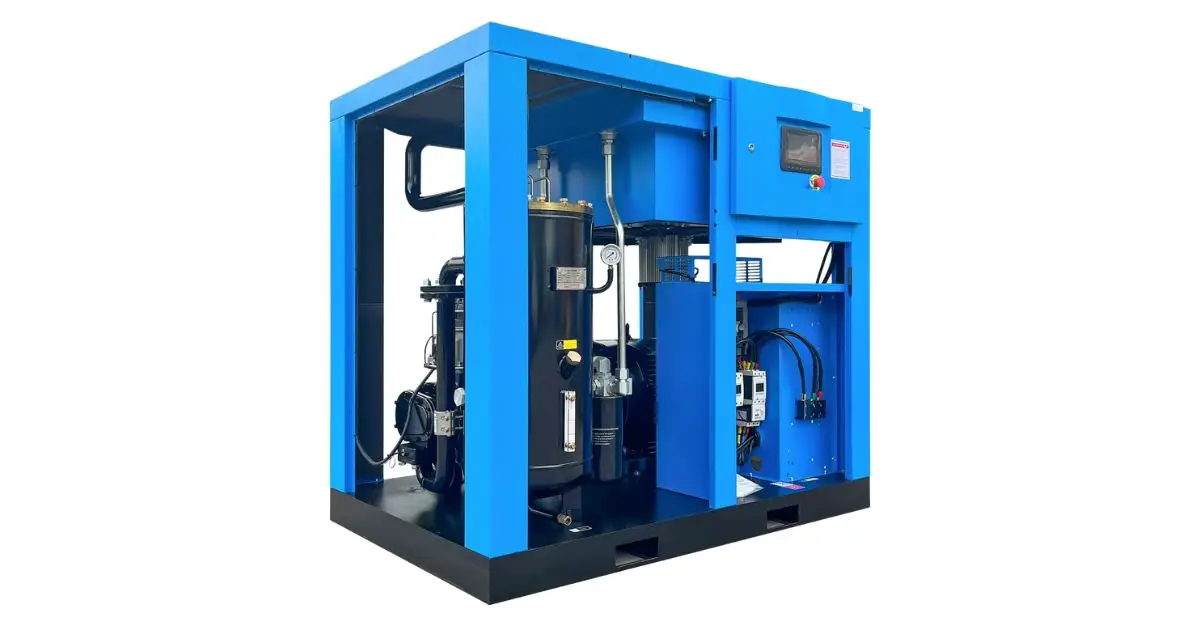
Industries That Use Each Compressor
Identifying the industries that rely on each type of compressor can offer insight into their most relevant applications.
Fixed-Speed Compressors
- Manufacturing lines requiring high, constant airflow
- Construction sites
- Heavy machinery operations
Variable-Speed Compressors
- Automotive workshops with fluctuating air demands
- Food and beverage packaging facilities
- Healthcare applications, such as powering surgical tools
Understanding how compressors are used across different industries can help you determine which setup aligns with your needs.
Choosing the Right Compressor for Your Needs
Selecting between a variable-speed and fixed-speed air compressor depends on your specific operations, budget, and long-term goals. By accounting for these factors, you can ensure you get the most out of your investment and improve operations for your business.
Evaluate Your Demand
Is your air consumption consistent, or does it fluctuate? Fixed-speed units are best for steady demand, while variable-speed units excel in dynamic environments.
Consider Energy Costs
If energy efficiency and sustainability are priorities, a variable-speed compressor can deliver significant savings over time.
Factor In Maintenance
Assess your team’s capacity for handling maintenance and repairs. Fixed-speed units generally require less upkeep.
Why You Should Consult an Expert
Consulting an expert when choosing an air compressor can save you time, money, and frustration. Professionals have extensive knowledge of the latest equipment, technologies, and industry standards, enabling them to match your specific needs with the best solution available. They can guide you in identifying the right size, power, and features for your use case, ensuring efficiency and reliability.
Additionally, experts can provide insights into long-term costs, including energy consumption and maintenance requirements, helping you make an informed decision that aligns with both your budget and operational goals. The experience of professionals makes them invaluable for tailoring recommendations to unique environments and applications.
Reach out to air compressor specialists to assess your needs. They can help you determine the optimal configuration for your setup!
Transform Your Operations With the Right Air Compressor
Air compressors are the backbone of many industries, and making the right choice is vital for operational success. Whether you value simplicity and reliability or advanced technology and efficiency, both fixed-speed and variable-speed compressors have their merits. With your newfound knowledge of variable- versus fixed-speed air compressors, you can find the one that best meets the demands of your organization.
Looking to upgrade your setup? US Air Compressor is here with a wide selection of products that are sure to meet your needs. Consider a fixed-speed compressor for a dependable, predictable solution to help you power your business with confidence!




